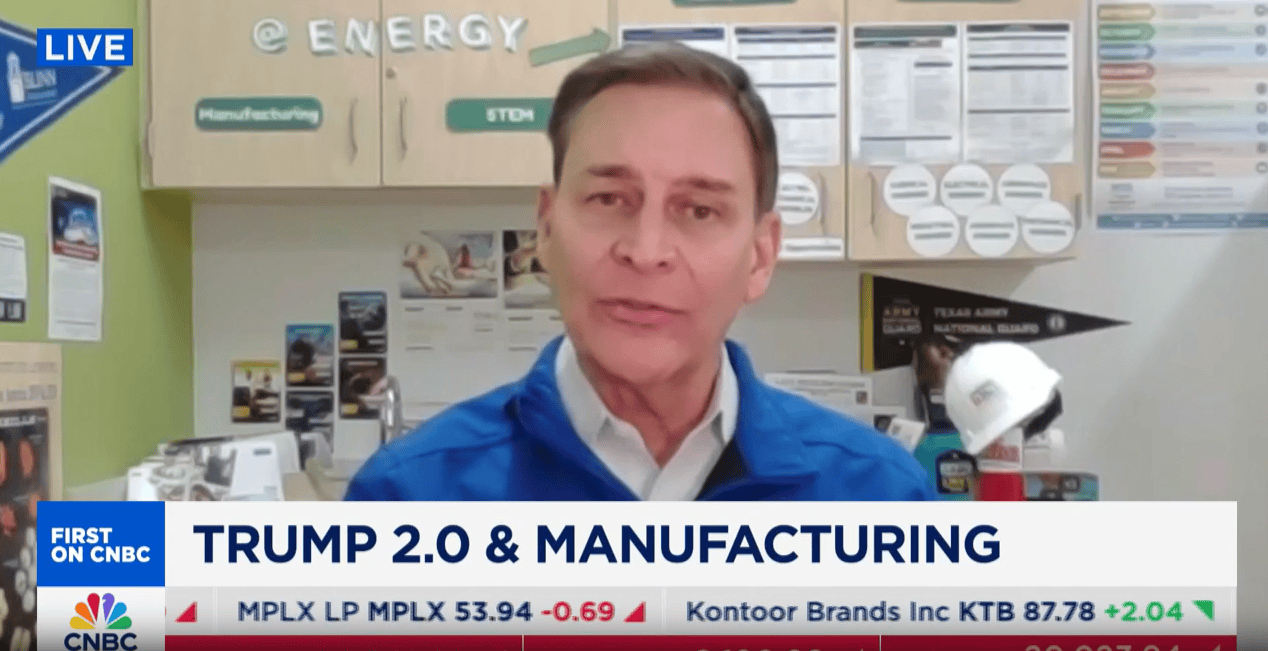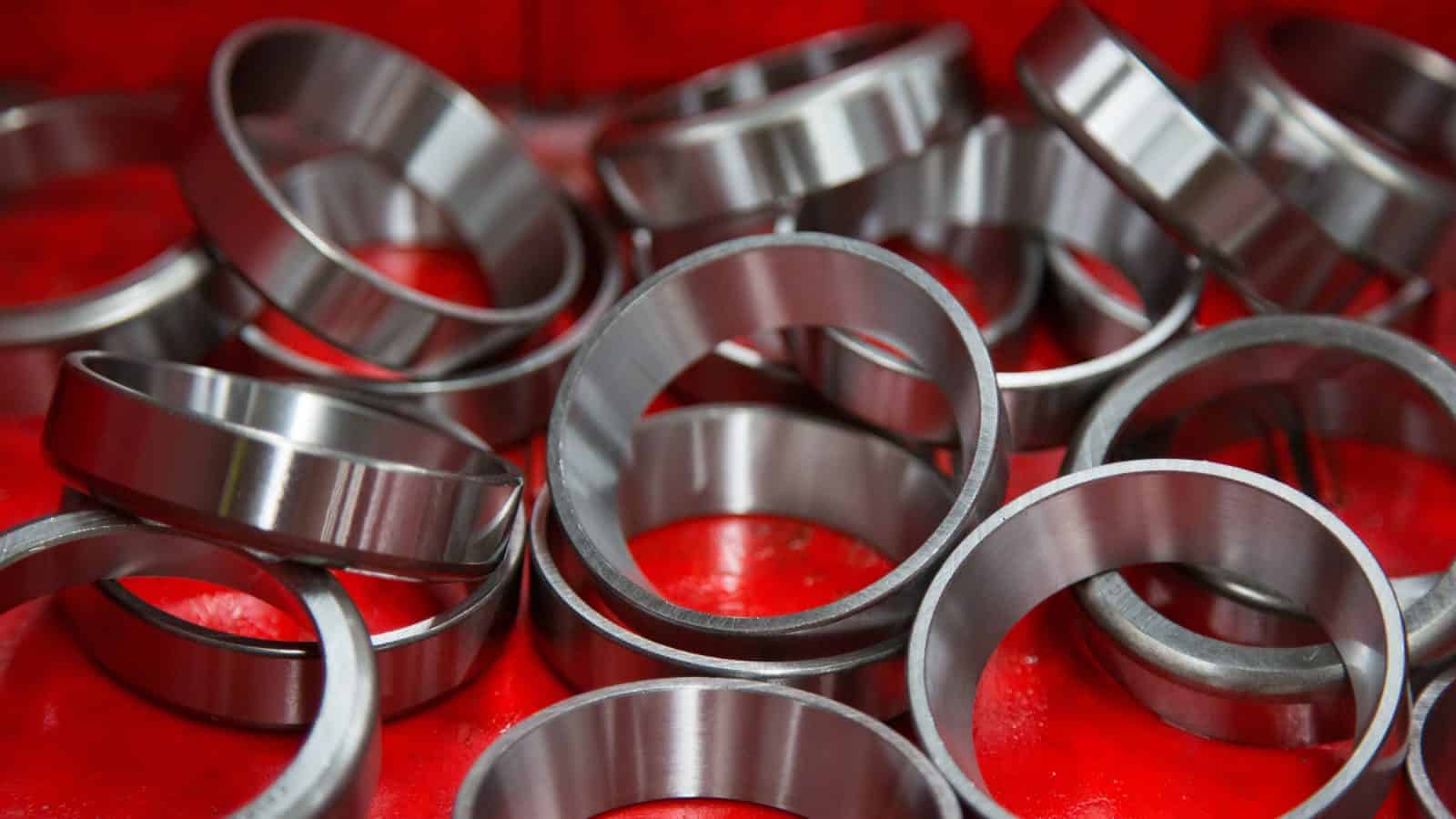Timmons: Tax Reform Paramount for Manufacturing Growth

Manufacturers need an integrated, comprehensive strategy for expanding their sector, and a large part of that is preserving and bringing back tax reforms, NAM President and CEO Jay Timmons said on CNBC’s “The Exchange” Wednesday.
What’s going on: Timmons spoke to the news channel from a teacher workroom at the Energy Institute High School in Houston, Texas, a stop on the first leg of the NAM’s 2025 Competing to Win Tour. He told show host Kelly Evans that any plans to bolster manufacturing in the U.S. must “start with renewing those tax reforms from 2017.”
- “A smart strategy is going to involve reducing the cost of doing business for manufacturers here in the United States,” he said, praising Republican House leadership for being “able to move” forward a House budget bill “that’s going to set the framework for those tax rates to be set, hopefully, permanently in stone.”
- The 665-student Energy Institute High School, led by Principal Lori Lambropoulos, is the first high school in the U.S. dedicated to preparing students for careers in the energy industry.
What else is needed: Timmons echoed some of the major themes from the NAM State of Manufacturing Address, which he gave Tuesday in Ohio.
- “We also are looking at regulatory reform,” he told Evans. “We’re looking at expanding our energy dominance. We’re looking at workforce policy … and then, of course, we have to have a sensible trade policy as well.”
But back to taxes: Bringing back expired provisions from the 2017 Tax Cuts and Jobs Act, and making them and other, scheduled-to-expire provisions from the legislation permanent, is critical to manufacturing’s future success, Timmons continued.
- “Ninety percent of my 14,000 members are small and medium manufacturers. Most of them benefit from the pass-through deduction that expires this year. And I don’t think what you want to see is a huge tax increase that will cost 6 million jobs in the economy happen if we don’t renew those reforms,” he said, citing data from a recent NAM study on the effects of a congressional failure to act on tax reforms.
- “That’s why the Speaker’s actions in the last day or so have been so incredibly important to get this thing moving forward. President Trump actually endorsed that bill—the ‘one big, beautiful bill,’ as he calls it—and that will help make America great again for manufacturing.”
Energy dominance: Also critical to the success of manufacturing and the U.S. economy as a whole: the right energy policies, Timmons said. Promising to “unleash the energy sector,” President Trump lifted the previous administration’s ban on liquefied natural gas exports on his first day in office.
- Yesterday, the NAM got to see first-hand some of the effects of that kept promise, when the team visited Freeport LNG’s liquefaction facilities near Houston.
- More than 9,000 construction jobs were created during the construction of those facilities, which now directly employ about 400 people. Their operations have an estimated total positive economic impact on the U.S. economy of more than $5 billion a year.
- “Energy is … a critical national security component,” Timmons said on CNBC.
Emphasis point: The tour also stopped at Bray International, a global leader in flow control and automation solutions, supporting U.S. energy dominance, LNG exports and high-tech manufacturing.
- The visit helped underscore why policies that support manufacturing investment and provide certainty to manufacturers are essential to America’s economic future.
Up next: Today, the NAM is in Alabama, where this morning Manufacturing Institute President and Executive Director Carolyn Lee gave the Manufacturing Institute’s State of the U.S. Manufacturing Workforce Address at Drake State Community & Technical College in Huntsville. (The MI is the NAM’s 501(c)3 workforce development and education affiliate.) The theme: building the workforce of the future.
- This afternoon, the team will tour Toyota Motor Manufacturing Alabama in Huntsville, the manufacturing facilities of Bruderer Machinery in Huntsville and Milo’s Tea Company in Bessemer.
